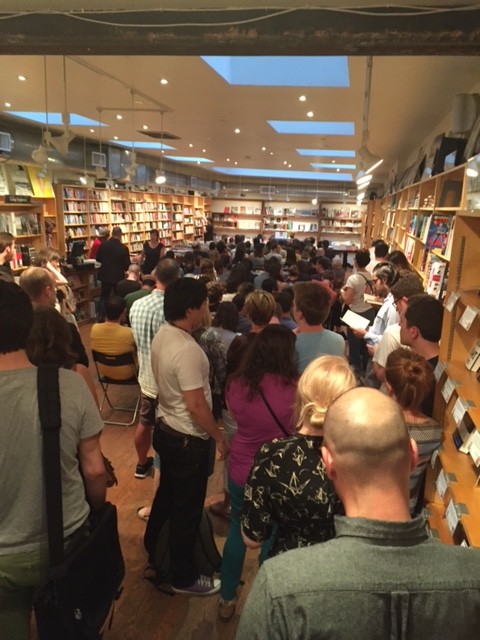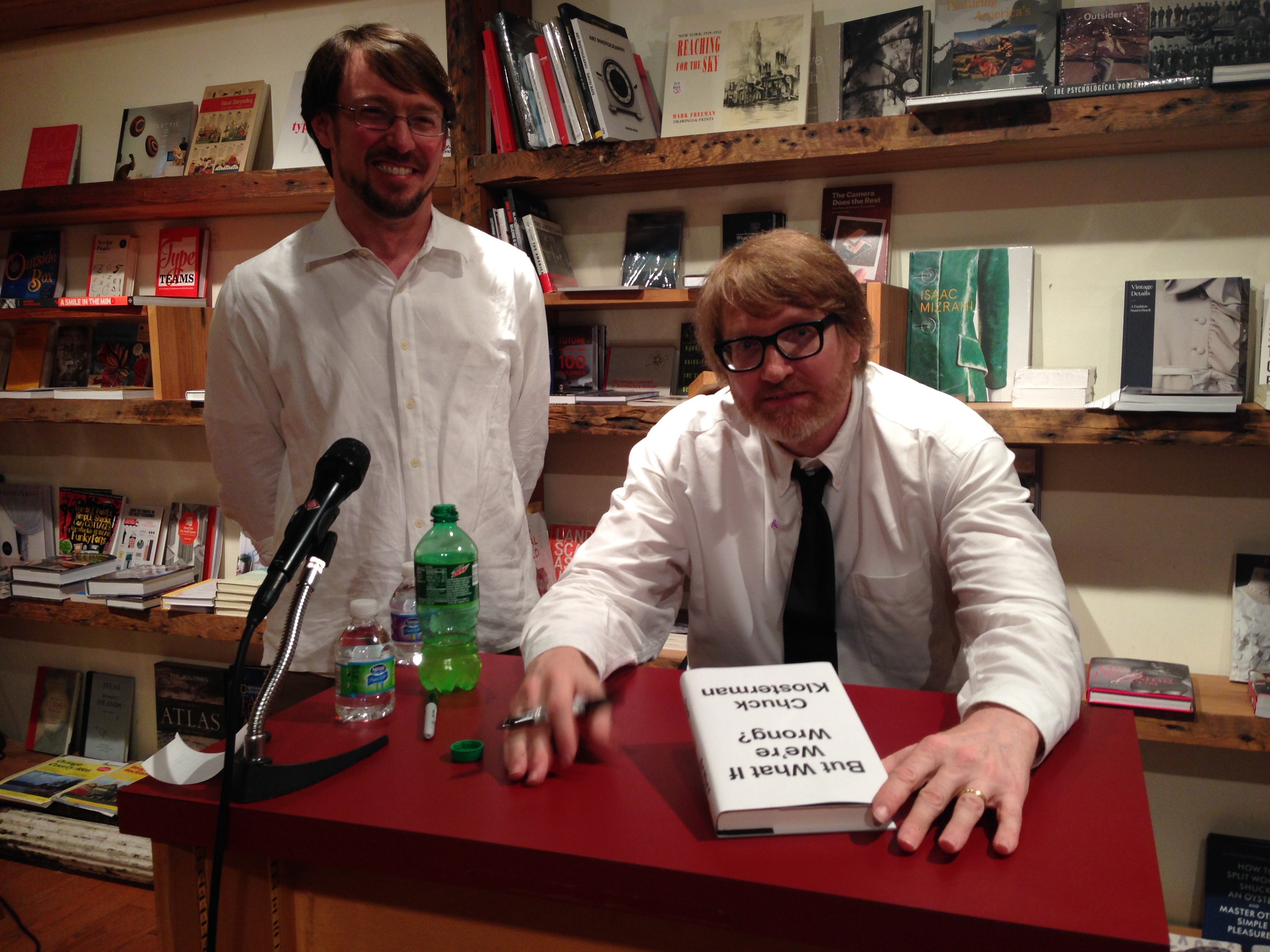We know readers tend to be writers too, so we feature writing tips from our authors. Who better to offer advice, insight, and inspiration than the authors you admire? They’ll answer several questions about their work, share their go-to techniques and more. Now, get writing!
What writing techniques have you found most important or memorable?
In a memorable cri du coeur, the wonderful Turkish-American essayist Elif Batuman declared:
‘I would greatly prefer to think of literature as a profession, an art, a science, or pretty much anything else, rather than a craft. What did craft ever try to say about the world, the human condition, or the search for meaning? All it had were its negative dictates: “Show, don’t tell”; “Murder your darlings”; “Omit needless words.” As if writing were a matter of overcoming bad habits—of omitting needless words.’
One other piece of advice, though: if an editor, or friend, makes a comment about something you have written and you strongly disagree, don’t dismiss the fact that something in what you have written disturbed them. Their suggestion may not be helpful, or the right one, but look again at the passage in question, just in case there is something there you can improve.
How would you recommend creating and getting to know your characters?
Start with the name. Many novelists can’t imagine their characters until they feel they have named them in a way that chimes in with their personalities. Anne Lamott’s Bird by Bird has the following general advice:
‘You may only know your characters’ externals instead of their essences. Don’t worry about it. More will be revealed over time. In the meantime, can you see what your people look like? What sort of first impression do they make? What does each one care most about, want more than anything in the world? What are their secrets? How do they move, how do they smell? Everyone is walking around as an advertisement for who he or she is—so who is this person? Show us. . . .
‘You also want to ask yourself how they stand, what they carry in their pockets or purses, what happens in their faces and to their posture when they are thinking, or bored, or afraid. Whom would they have voted for last time? Why should we care about them anyway? What would be the first thing they stopped doing if they found out they had six months to live? Would they start smoking again? Would they keep flossing?’
After developing an idea, what is the first action you take when beginning to write?
Well, in truth I try the idea out on my wife. She’s also my literary agent and best friend, and will always find the best way of letting me down if my idea is a truly bad one. But what is meant by ‘developing an idea’? It’s too broad a phrase. If one means a whole notion for a book, I advise writing the story down in the manner of a book blurb, no more than 250 words (about the amount of words a book salesman has to interest a customer). If a book project is still unclear, or doesn’t compel attraction within that wordage, something is amiss.
Is there something you do to get into a writing mood? Somewhere you go or something you do to get thinking?
Hemingway is meant to have said, ‘I write drunk and revise sober,’ although some people say it was the other way round. Woody Allen takes lots of showers to get his creative juices going. Scott Fitzgerald used to strip off his clothes — completely — before writing. Gertrude Stein would get her companion to drive her into the countryside so she could gaze on the cows there before going back to her writing table.
Did you always want to write? How did you start your career as an author?
I produced a school magazine whenI was twelve; and continued as the main schoolboy editor when I was at high school. But for years I though I was an editor of other peoples’ work, not someone who could produce his own books. In 1999 I left my job in British publishing; left Britain; and settled down in a new marriage, in New York. I tried to get a job as an editor at Knopf, but its MD, Sonny Mehta, said I should write a book about my main hobby of 45 years, fencing — so I went off and produced a 520-page book on swordplay over 3,000 years, and suddenly I was a writer.
What’s the best piece of advice you have received?
I have no idea. I always forget advice. Maybe, remember to turn the lights off. Say Yes rather than No. Or, for writers, One can always revise more.
What clichés or bad habits would you tell aspiring writers to avoid? Do you still experience them yourself?
We all fall into hackneyed ways of writing. My current bugbear is people saying ‘incredible,’ when all they mean is ‘very.’ I recall revising a chapter so often that only on a last read-through did I realise I’d started seven consecutive paragraphs with the word ‘Then.’
Describe your writing style in 5 words or less.
Anecdotal, story-led, humorous, inquiring, addictive.
Do you ever base characters off people you know? Why or why not?
So far I have published only non-fiction. I have started a novel, set in France in 1946, but my wife (see above) says I’m not allowed to write any more into it until I have finished my current commissioned book, titled ‘The History of Historians.’ But I think about the novel every single day.
What are three or four books that influenced your writing, or had a profound affect on you?
Shakespeare (sorry, but it’s true), Tolstoy’s main novels, Samuel Johnson‘s works, Alice in Wonderland
Learn more about the book below:
“Gemina: 10/5 Stars. Explosive, Brutal, Hilarious, Unforgiving, Fist Pumping, Jaw Dropping. These are the words I’m using for Gemina. I started Gemina on Thursday and stayed up last night until 3 a.m. finishing it because I COULD NOT STOP.”
“I think the whole world knows how much I loved #Illuminae and so far I’m loving Hanna and Nik’s story too! Anddddd the book features illustrations by @marieluthewriter! How awesome is that?!!!”
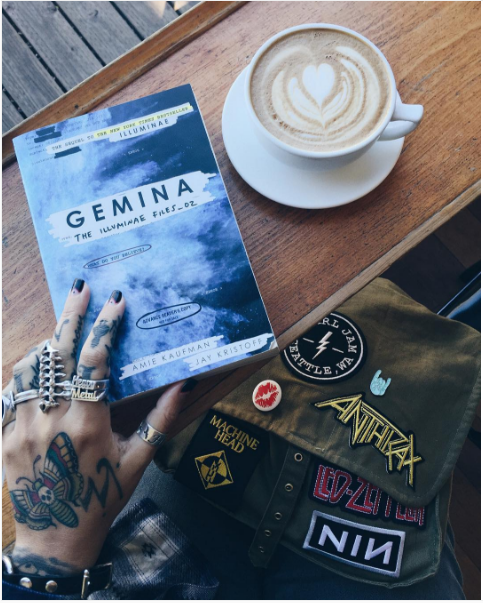 “I present you guys my favorite book of the year!!! If you haven’t read this series please do yourself a favor and get on it! If you do it simultaneously on audio is even better!”
“I present you guys my favorite book of the year!!! If you haven’t read this series please do yourself a favor and get on it! If you do it simultaneously on audio is even better!”
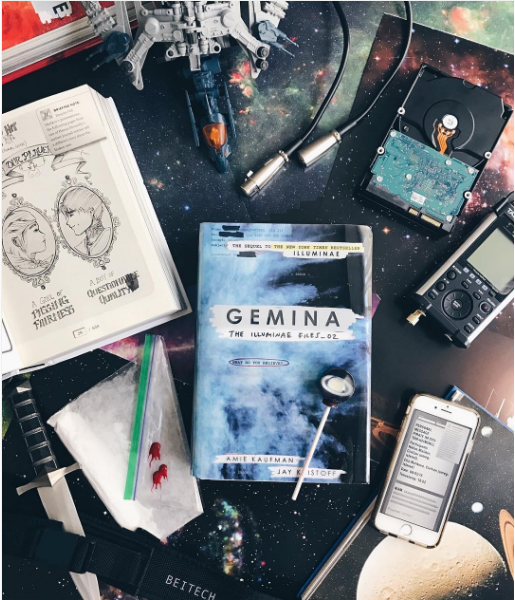 Thanks for following along with Gemina’s Life of a Book series!
Follow the authors on Twitter (@AmieKaufman, @misterkristoff) and Instagram (@amiekaufmanauthor, @misterkristoff)
Visit the website here: illuminaefiles.com
Check out more Young Adult books here.
Get the book here:
Thanks for following along with Gemina’s Life of a Book series!
Follow the authors on Twitter (@AmieKaufman, @misterkristoff) and Instagram (@amiekaufmanauthor, @misterkristoff)
Visit the website here: illuminaefiles.com
Check out more Young Adult books here.
Get the book here: 





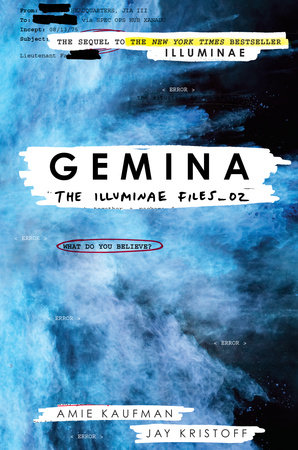
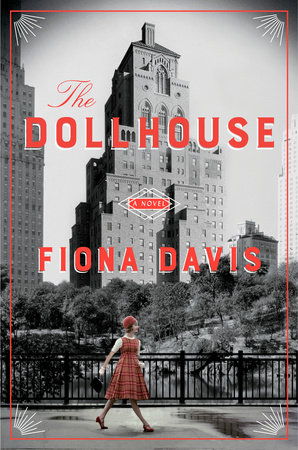




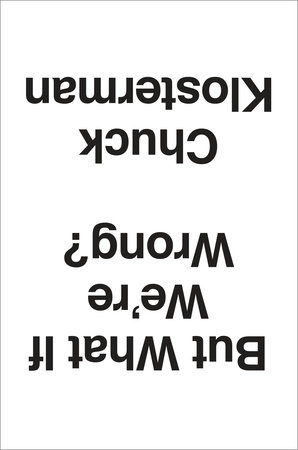
 Chuck read from his book and signed copies for fans… and it was a packed house!
Chuck read from his book and signed copies for fans… and it was a packed house!
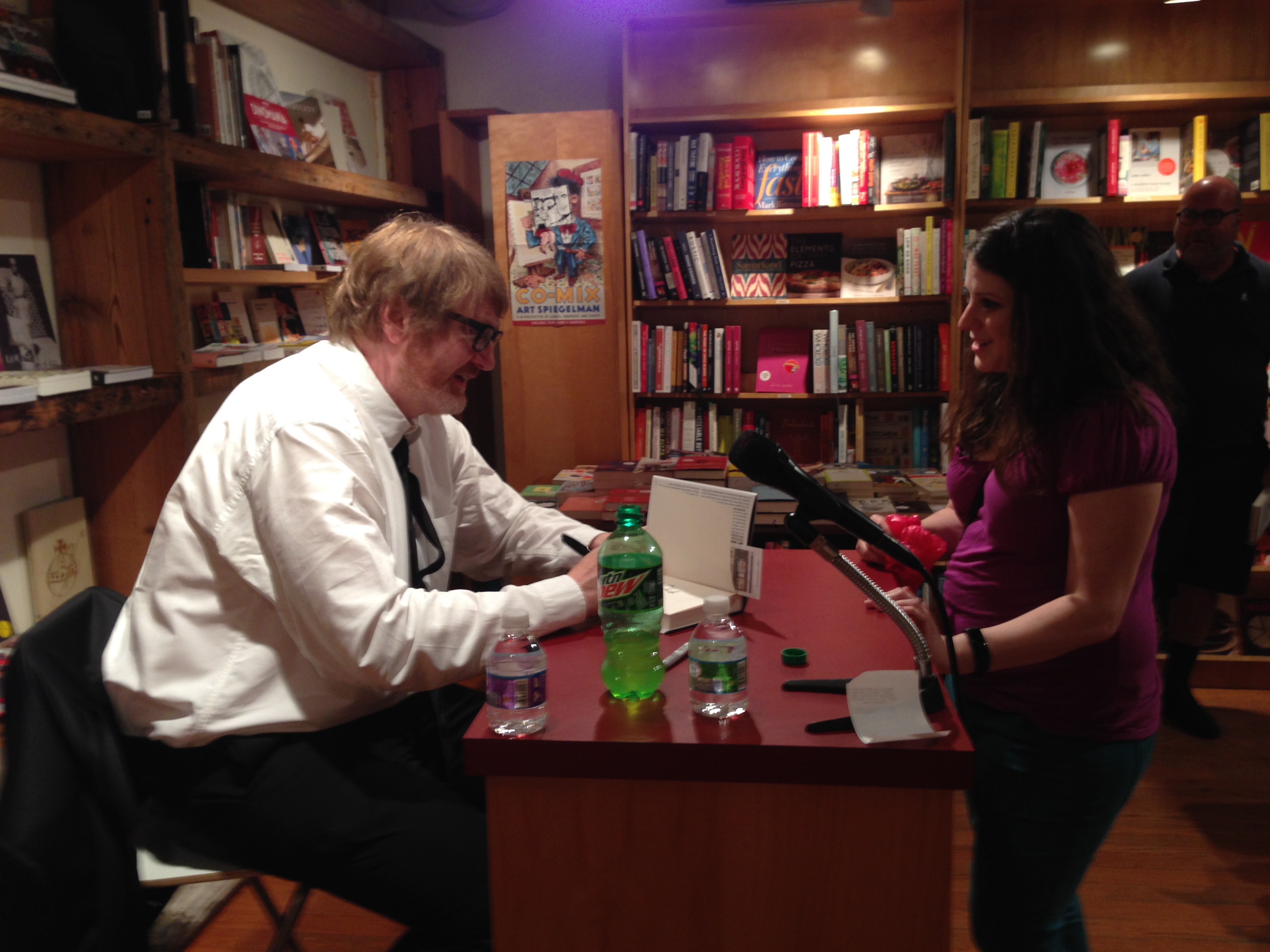 Today we’re featuring an interview with Andrew Unger, events and publicity manager of Brooklyn bookstore, BookCourt.
What is your job title, and what does that mean? What’s your day to day? What would surprise a layman to know?
I am the events and publicity manager. My daily schedule is varied and unpredictable, but focuses primarily on acting as the voice and public face of BookCourt. I manage our
Today we’re featuring an interview with Andrew Unger, events and publicity manager of Brooklyn bookstore, BookCourt.
What is your job title, and what does that mean? What’s your day to day? What would surprise a layman to know?
I am the events and publicity manager. My daily schedule is varied and unpredictable, but focuses primarily on acting as the voice and public face of BookCourt. I manage our 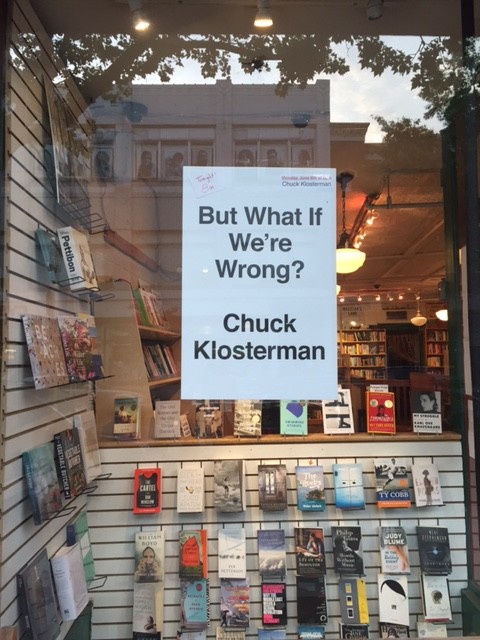 When you order books from a publishing company, what do you consider? What makes a book attractive to you and your customers?
We have store bestseller list at the front. This list features the bestselling books from the previous week. Consistently, these books reflect the same taste as reviewers for the New York Times, the New Yorker, and the New York Review of Books. Our customers prefer something sophisticated and intellectually stimulating. Proud as all of us are of our libraries, there’s just no escaping a good cover. Many bad books have been sold through good cover designs and, far and away, too many great books have been relegated to a dusty corner of the shelf because of an ill-advised cover. Occasionally, a truly great book will arrive in the store.
When you order books from a publishing company, what do you consider? What makes a book attractive to you and your customers?
We have store bestseller list at the front. This list features the bestselling books from the previous week. Consistently, these books reflect the same taste as reviewers for the New York Times, the New Yorker, and the New York Review of Books. Our customers prefer something sophisticated and intellectually stimulating. Proud as all of us are of our libraries, there’s just no escaping a good cover. Many bad books have been sold through good cover designs and, far and away, too many great books have been relegated to a dusty corner of the shelf because of an ill-advised cover. Occasionally, a truly great book will arrive in the store. 